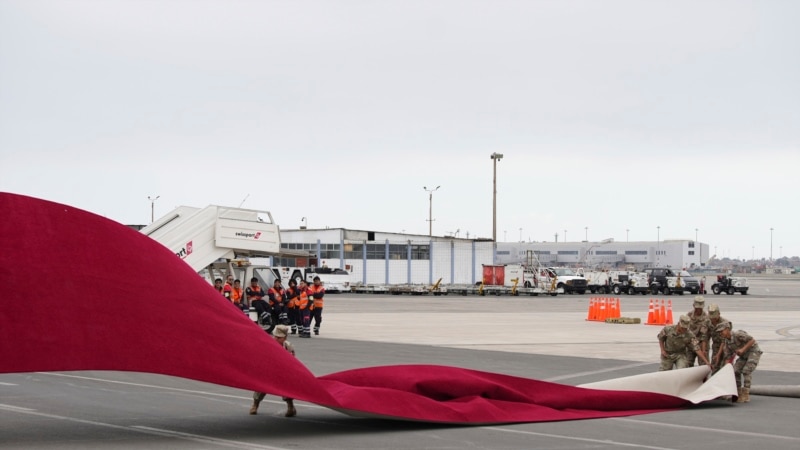
Leaders and representatives of the 21 countries that make up the Asia Pacific Economic Cooperation Forum (APEC) meet at a summit this Friday in LimaPeru, to strengthen alliances, discover new cooperation routes that prioritize inclusive growth and discuss the global economic future, just two months after a change of government in the United States
The annual meeting, which brings together nations that together represent almost two-thirds of global GDP and half of world trade, is the first international economic meeting since the victory of now president-elect Donald Trump in the US elections and while the world wonders how his second term could alter existing dynamics.
The outgoing president Joe Biden arrived yesterday in the Peruvian capital, where he is expected to meet with his Chinese counterpart, Xi Jinping, for the first time since their meeting in last year’s edition. The APEC forum will be one of the last global meetings that the US president will attend before he leaves office on January 20.
In addition to Biden and Xi, the Prime Minister of Canada, Justin Trudeau, is also in Lima; the president of Indonesia, Prabowo Subianto; the Prime Minister of Japan, Shigeru Ishiba, and that of Australia, Anthony Albanese.
The head of the White House also has meetings planned with his South Korean counterpart Yoon Suk Yeol, with the Japanese premier and with the president of Peru, Dina Boluarte.
APEC members will hold closed-door talks in the morning and meet with members of the bloc’s business advisory council in the afternoon. This entity met on Wednesday and asked the bloc’s partners to promote inclusive growth and prioritize the needs of micro, small and medium-sized businesses, especially those run by women and indigenous entrepreneurs.
“While the global economy remains resilient, APEC economies are grappling with persistent inflation, economic disparities, high interest rates and the urgent need to increase investments for a green and climate-resilient future,” said the council president, Julia Torreblanca.
From the APEC summit, President Biden will travel to Brazil to participate in the G20 meeting, where his advisors have announced that he will focus – as in Lima – on insisting on the importance of maintaining support for Ukraine in its fight. against Russia’s invasion and to insist on negotiating an end to Israel’s wars in Lebanon and the Gaza Strip.
Xi Jinping’s agenda rivals Biden’s. The Chinese leader inaugurated a 1.3 billion dollar megaport which is perhaps the clearest sign of the reorientation underway in Latin America.
Trump, the absent present
However, analysts say that both the APEC and G20 summits will be dominated by uncertainty regarding Trump’s return to Washington.
“APEC and the G20 will revolve around one thing… and that will be Donald Trump, and what to expect from the next Trump administration on trade, alliances and other issues,” said Victor Cha, chair of the Department of Geopolitics. and Foreign Policy of the Center for Strategic and International Studies.
Trump defeated Vice President and Democratic candidate Kamala Harris in the Nov. 5 presidential election after promising Americans that he would impose heavy tariffs on all imports, with an emphasis on Chinese goods, and signaled much softer support for Ukraine in his war against Russia.
Harris’ loss came after Biden, 81, stepped aside in the race.
Trump’s Republican Party also gained control of both houses of Congress, giving the president-elect additional power to push forward measures on trade and other issues.
Biden took office in 2020 seeking to rebuild alliances strained during Trump’s first term and sought to demonstrate that the United States remained committed beyond its borders. He strengthened and expanded the North Atlantic Treaty Organization (NATO) in addition to working to counter China in the Indo-Pacific by building multilateral alliances in Asia.
Trump has a fundamentally different worldview than Biden, preferring bilateral meetings where he can practice transactional diplomacy rather than multilateral partnerships like NATO.
[Con información de Associated Press y Reuters]
Connect with the Voice of America! Subscribe to our channelsYouTube, WhatsApp and to newsletter. Turn on notifications and follow us on Facebook, x and instagram.






![[Img #74664]](https://thelatestnews.world/wp-content/uploads/2024/12/James-Watson-The-controversial-genius-behind-the-double-helix-150x150.jpg)







Add Comment